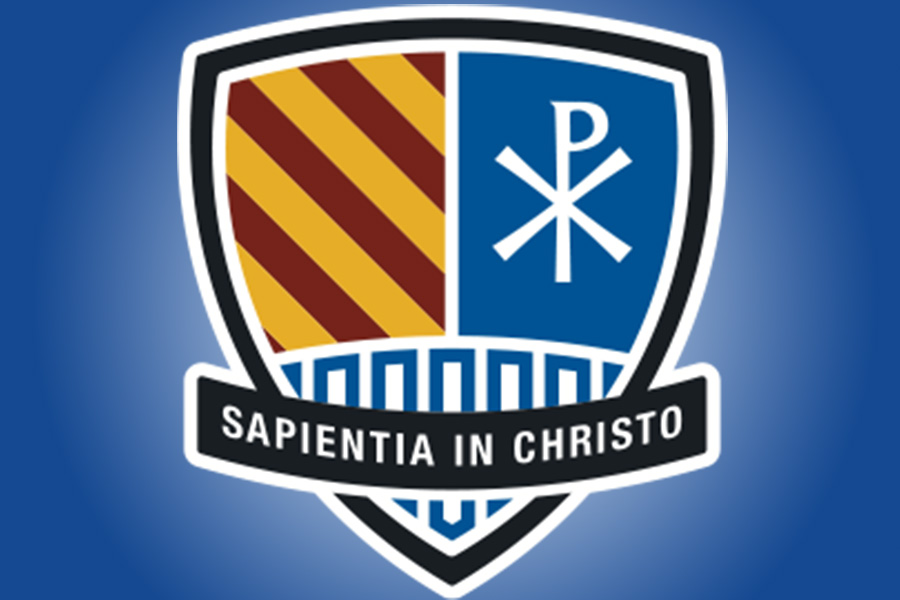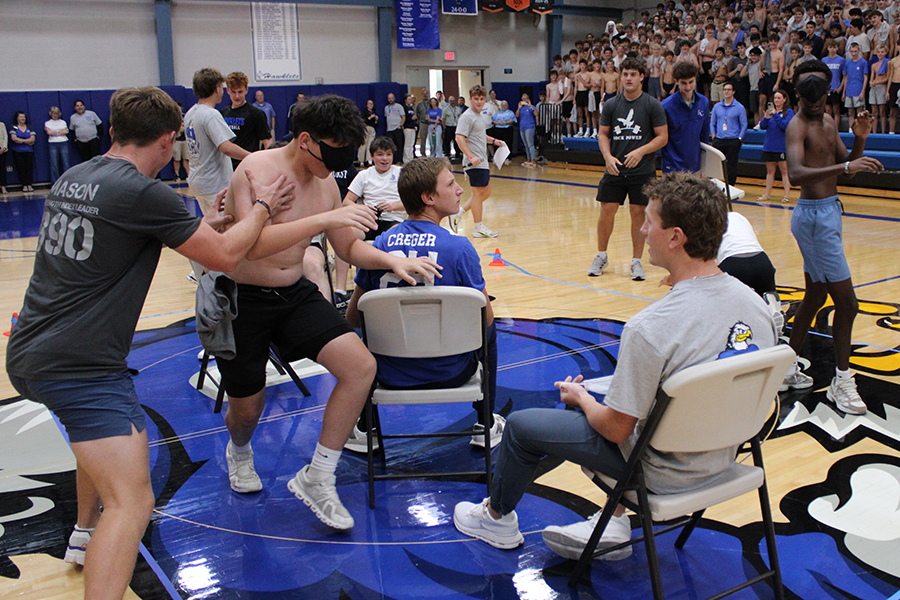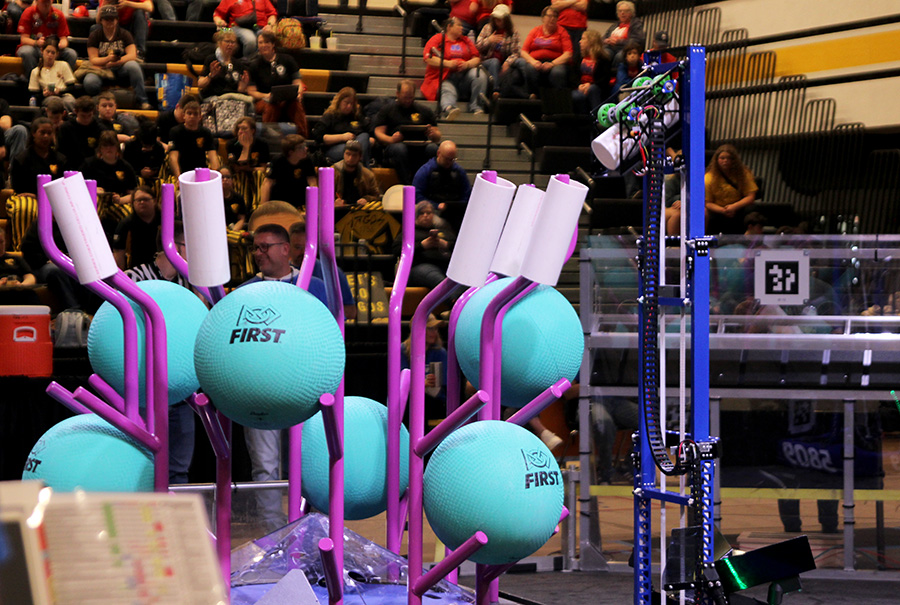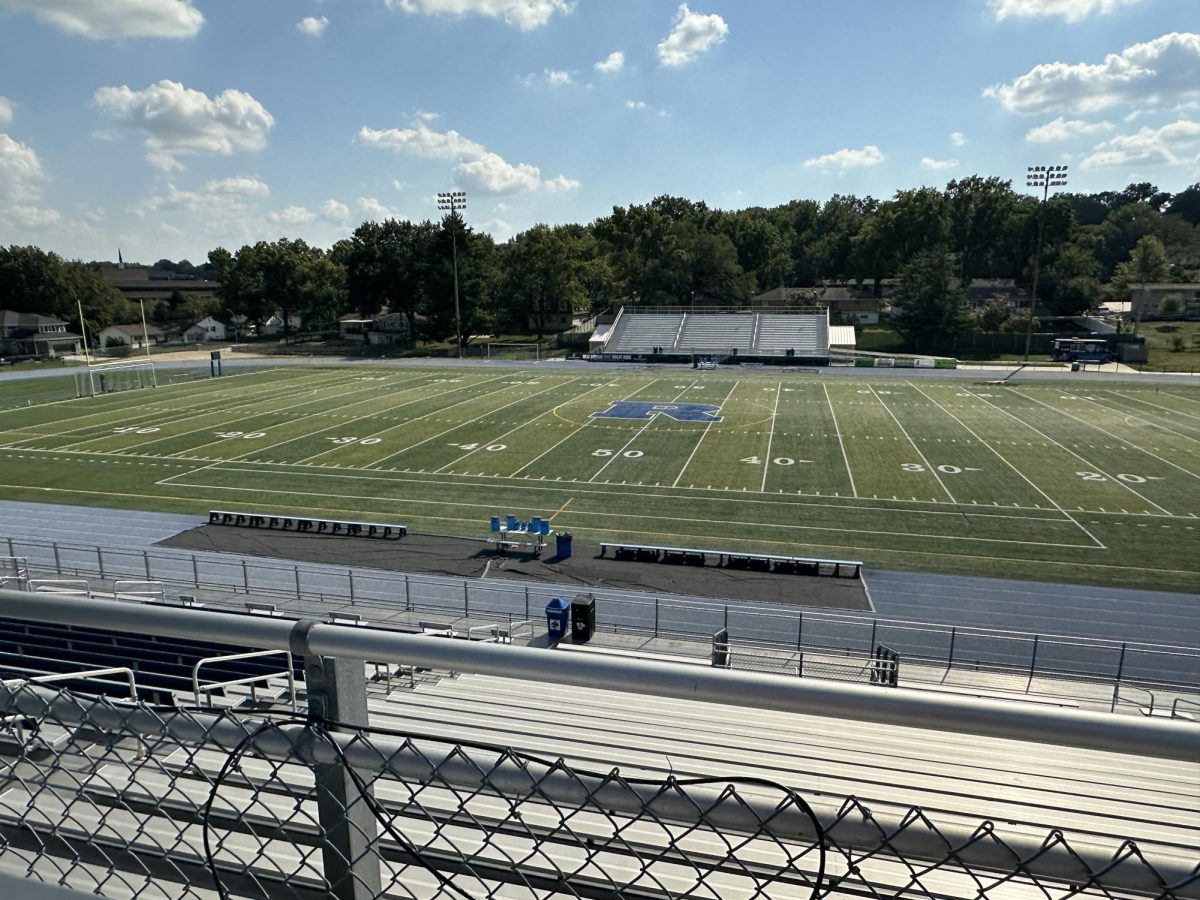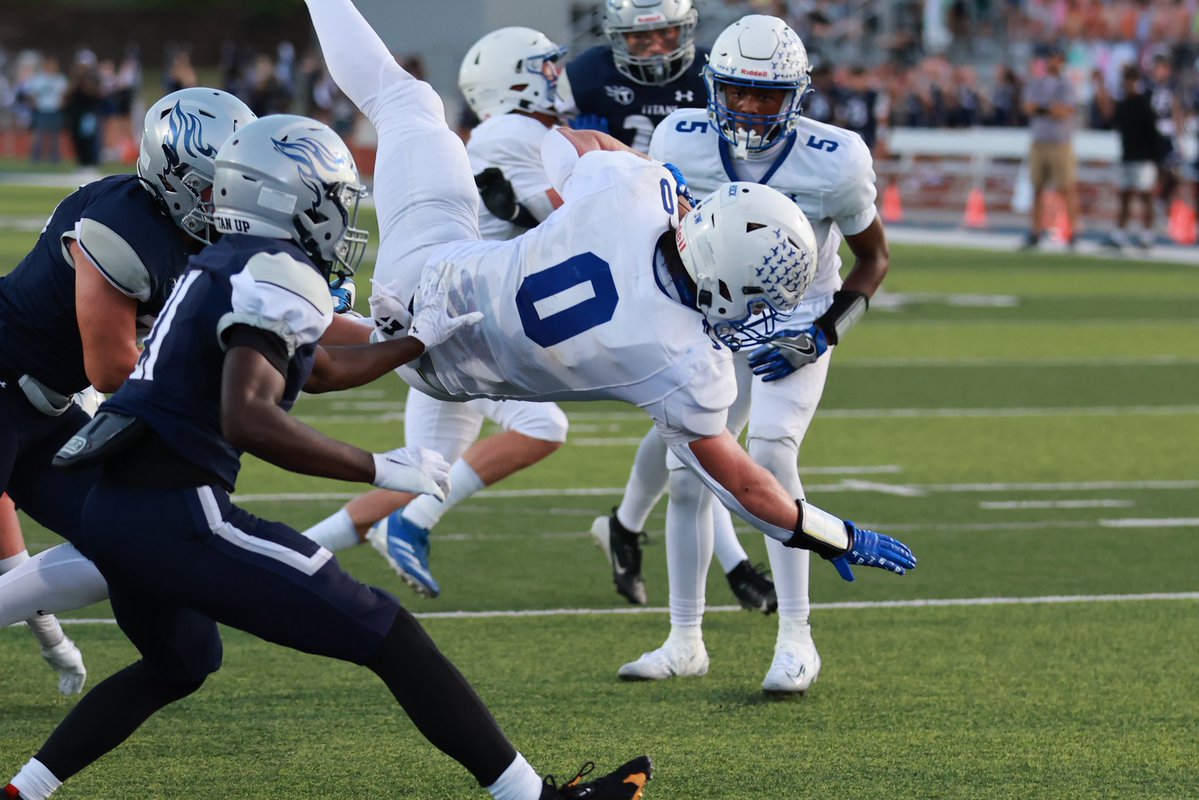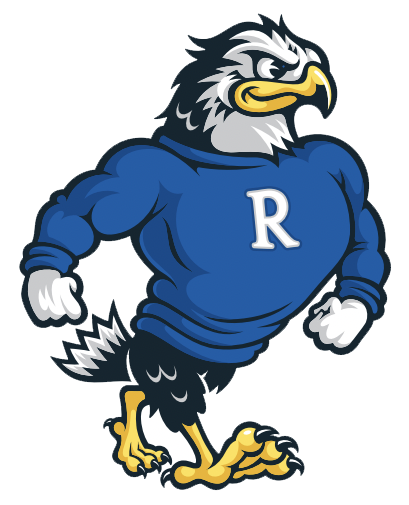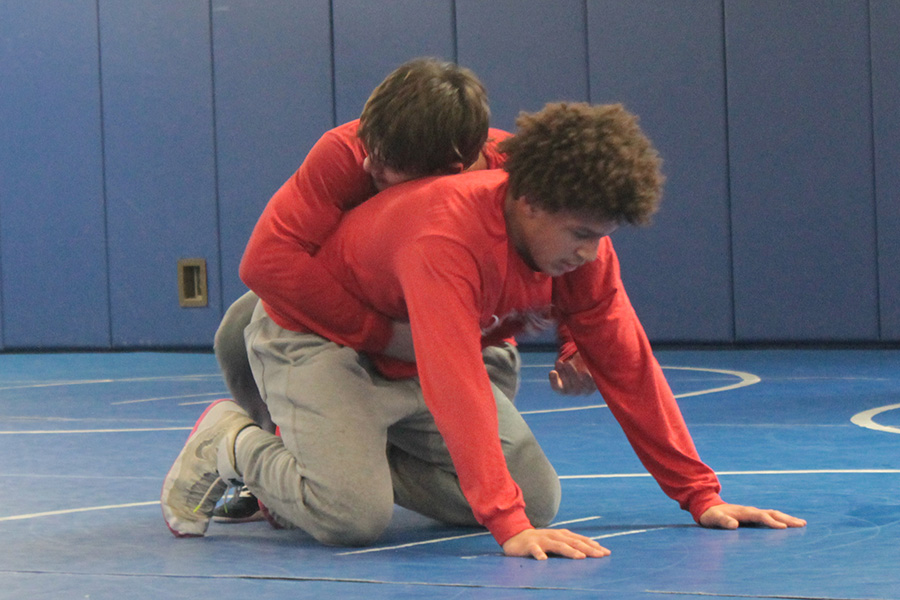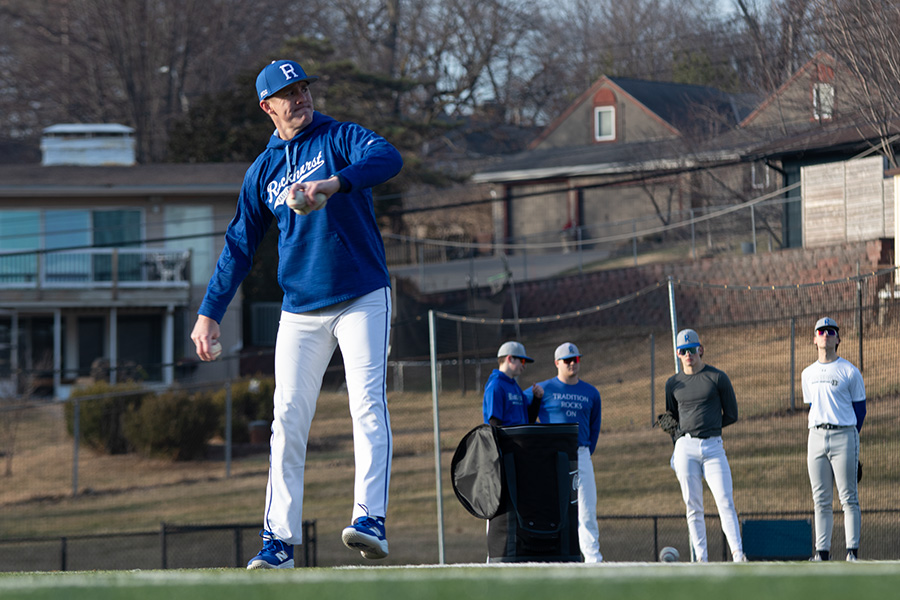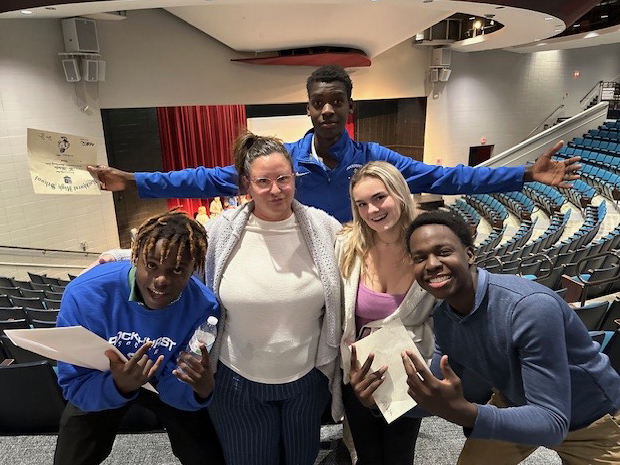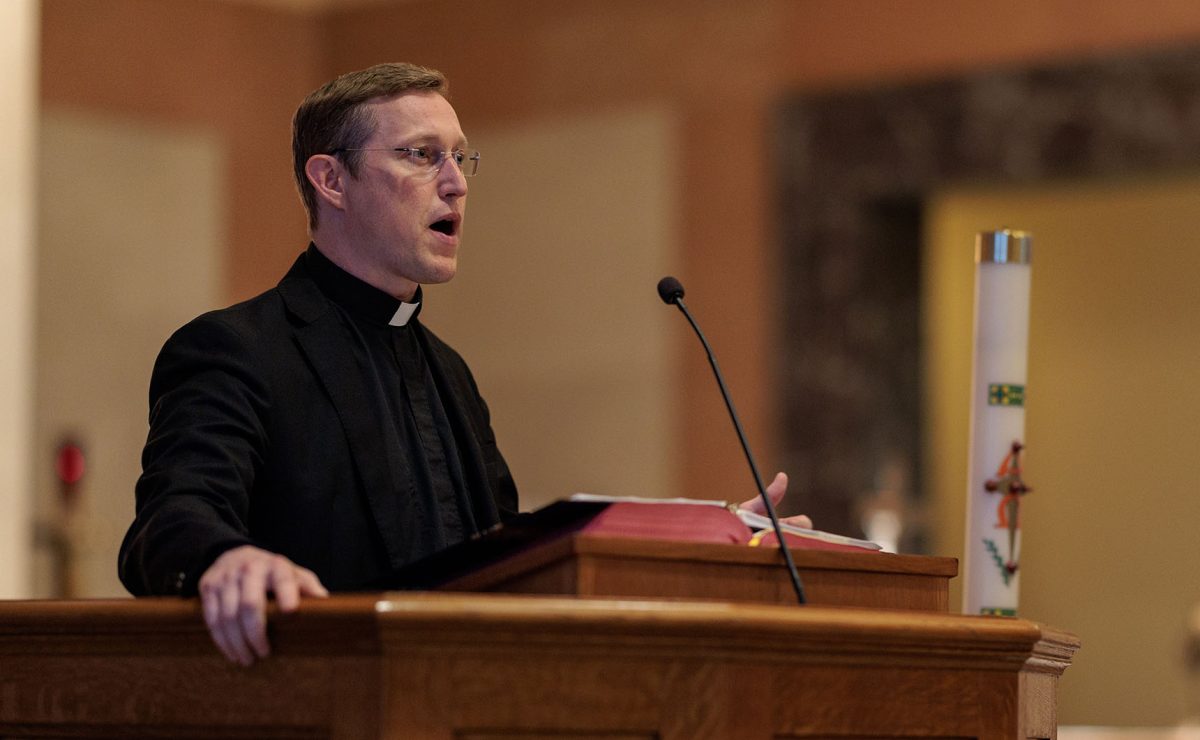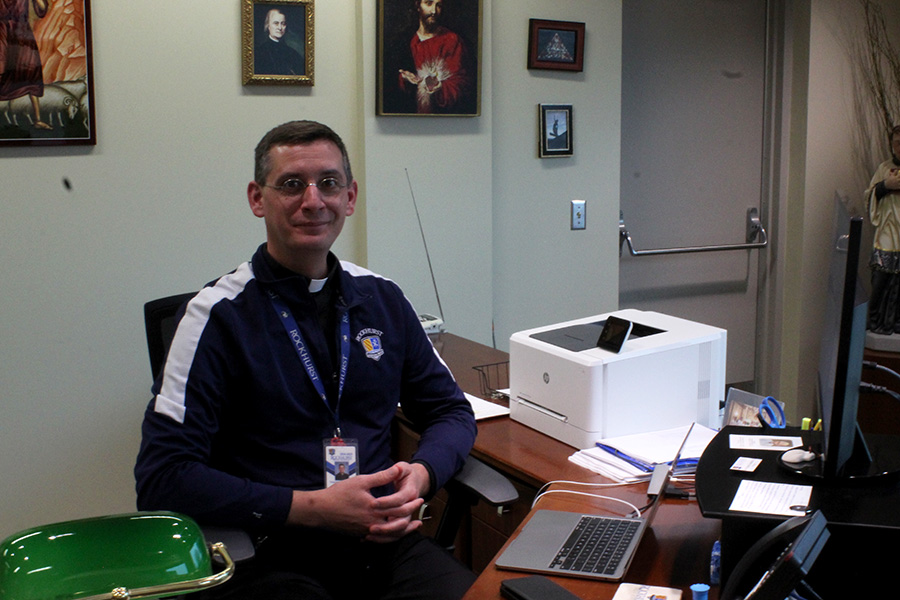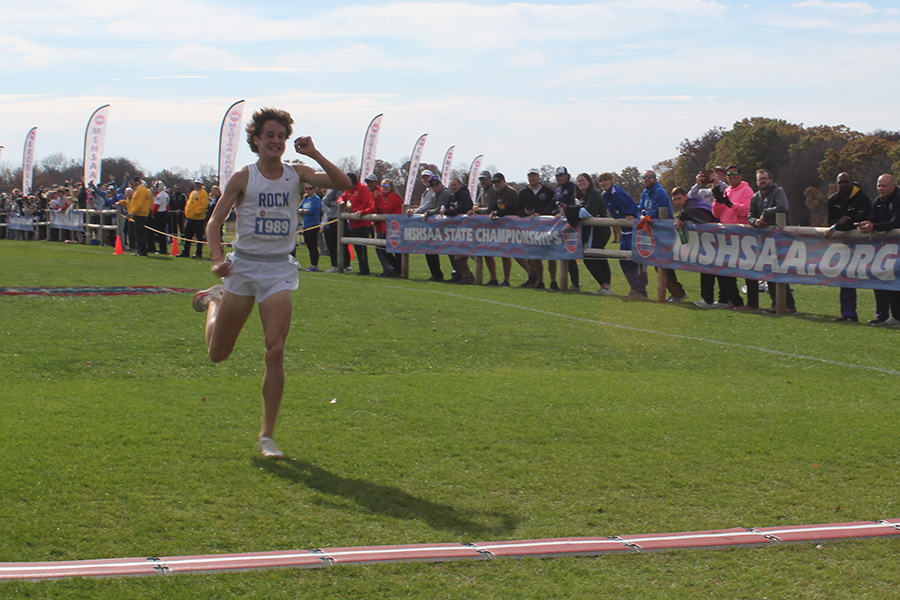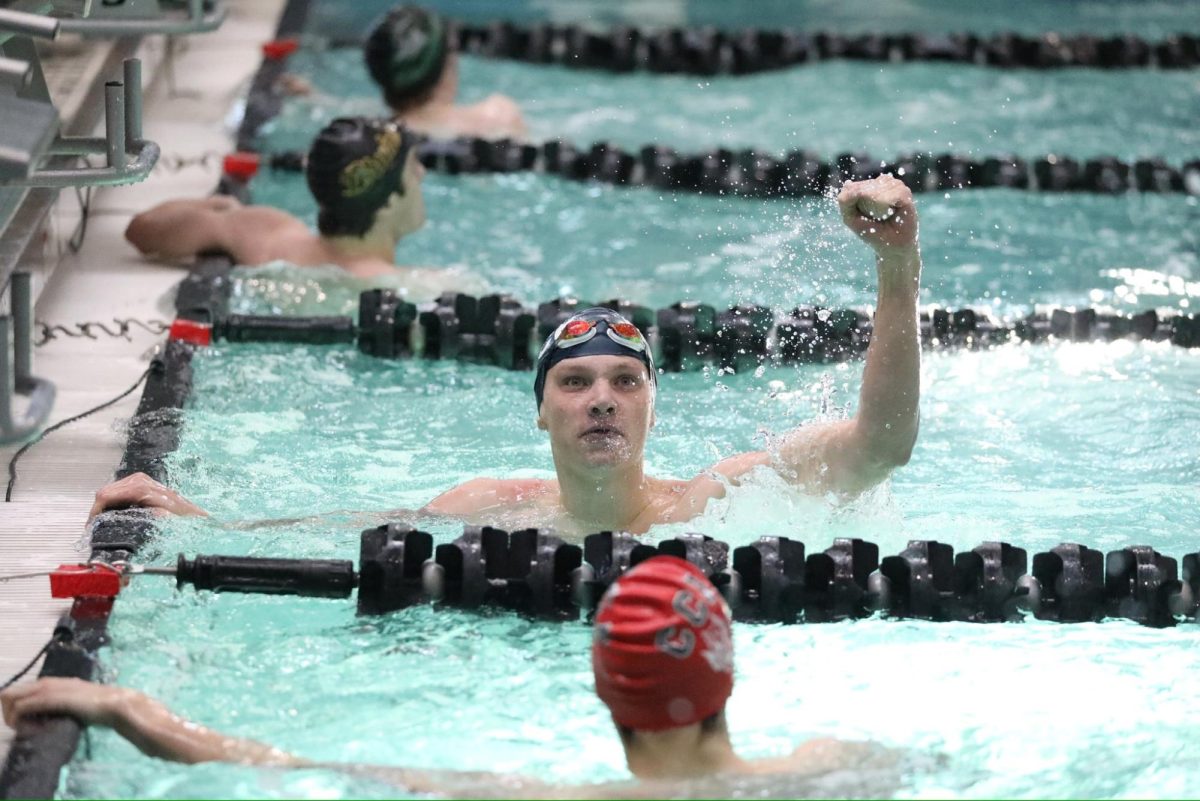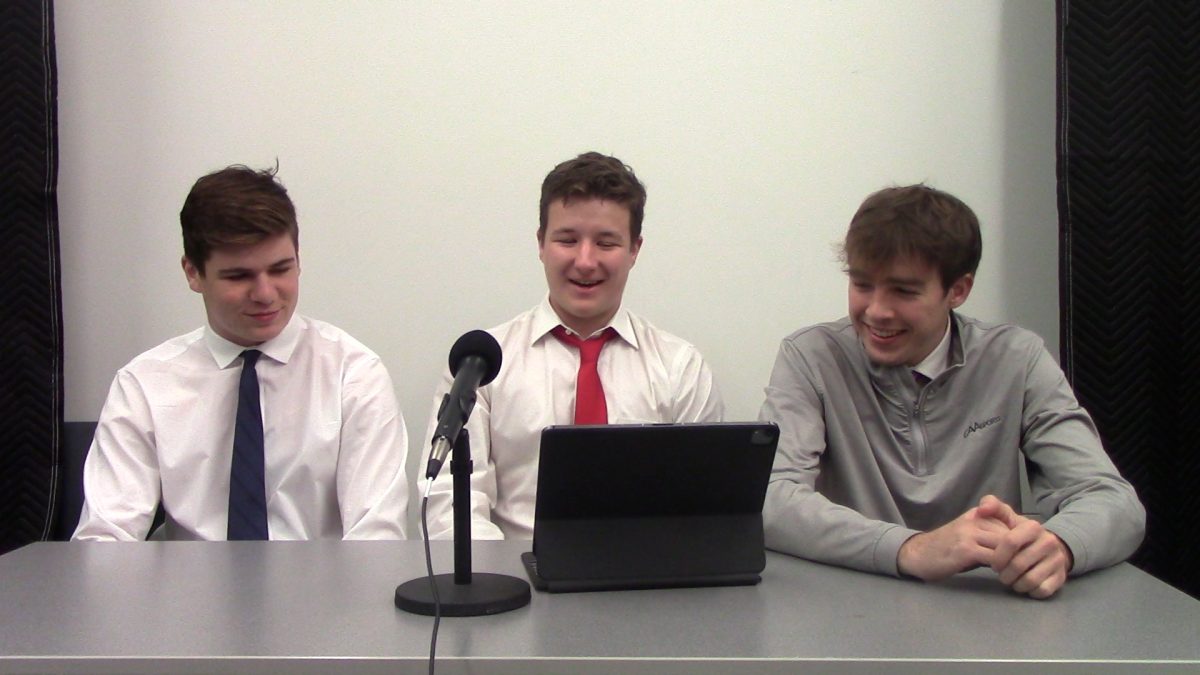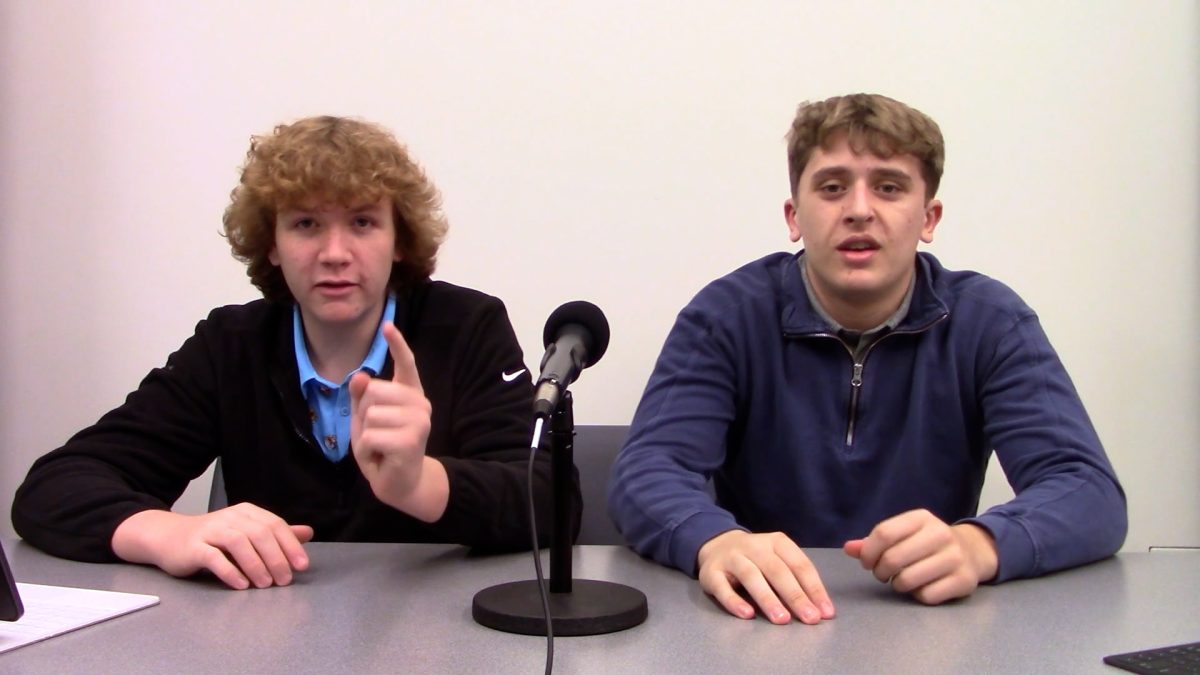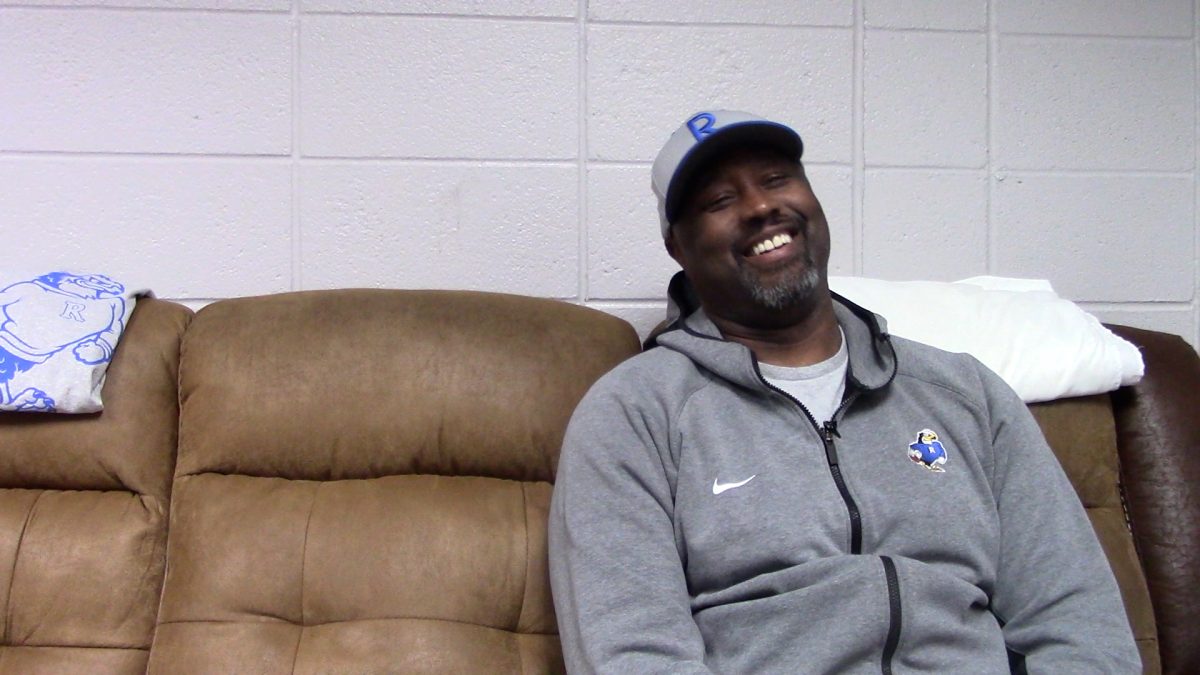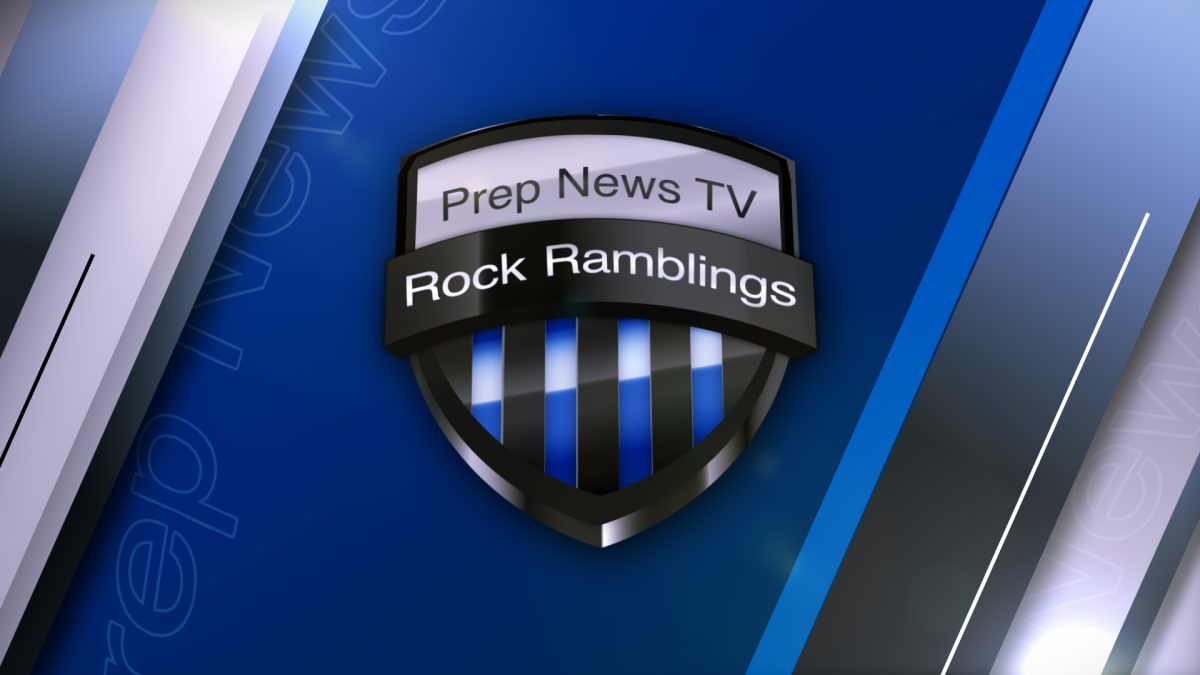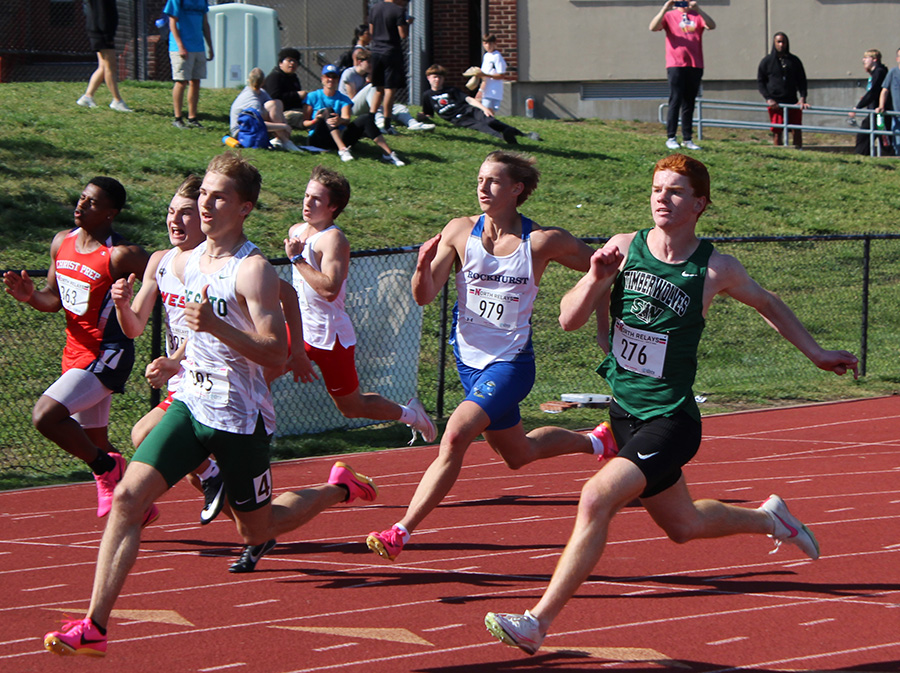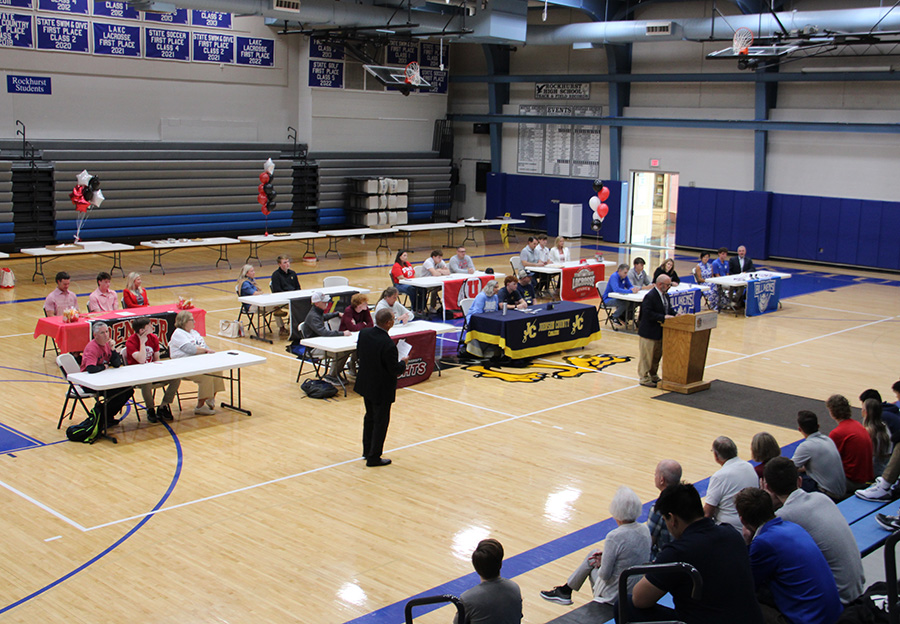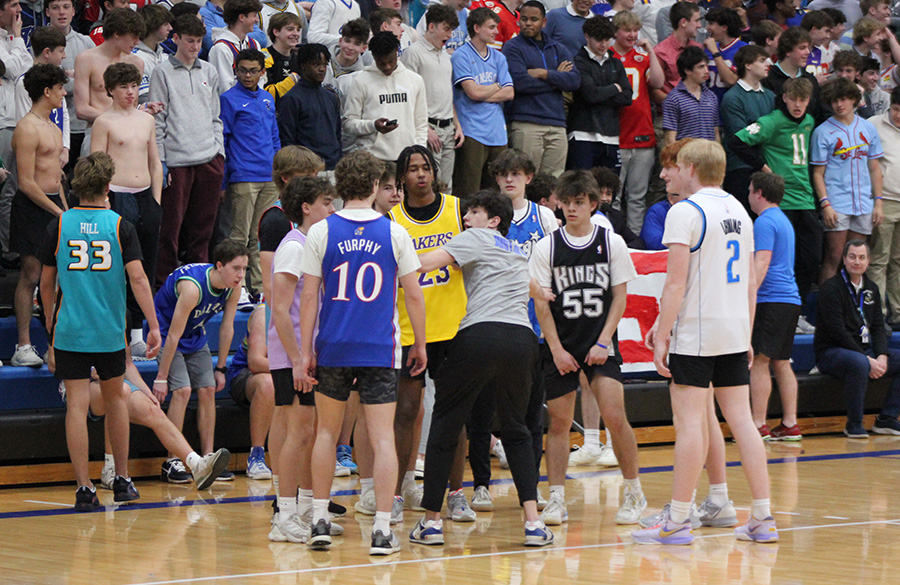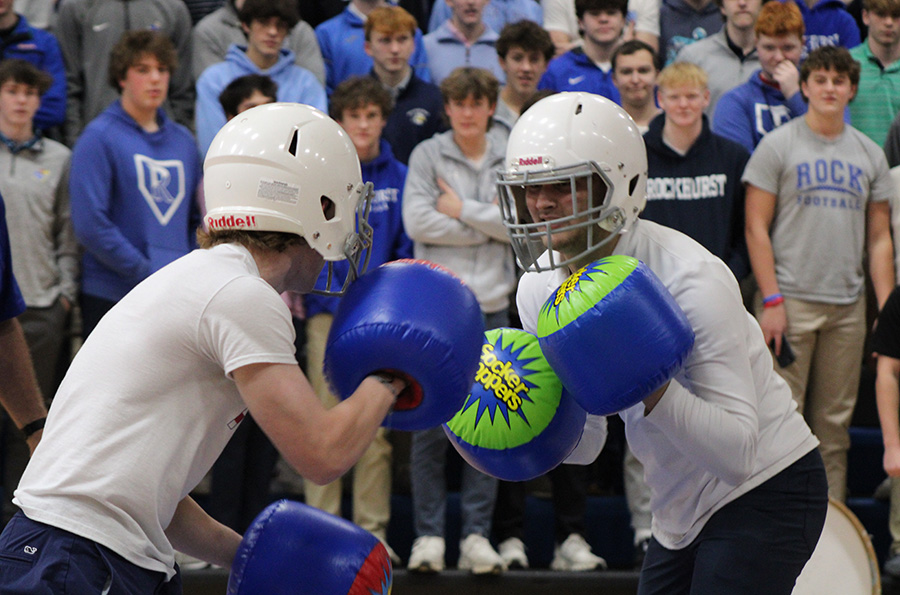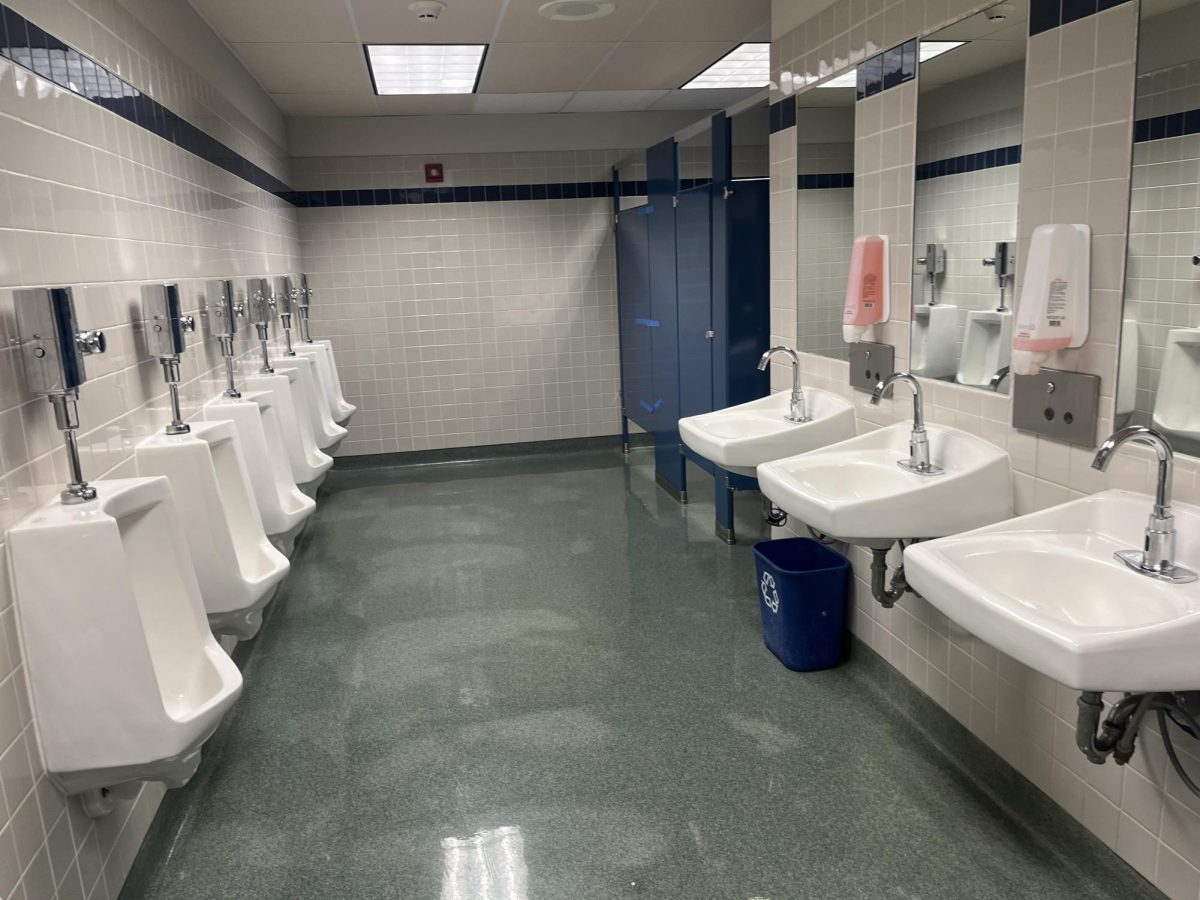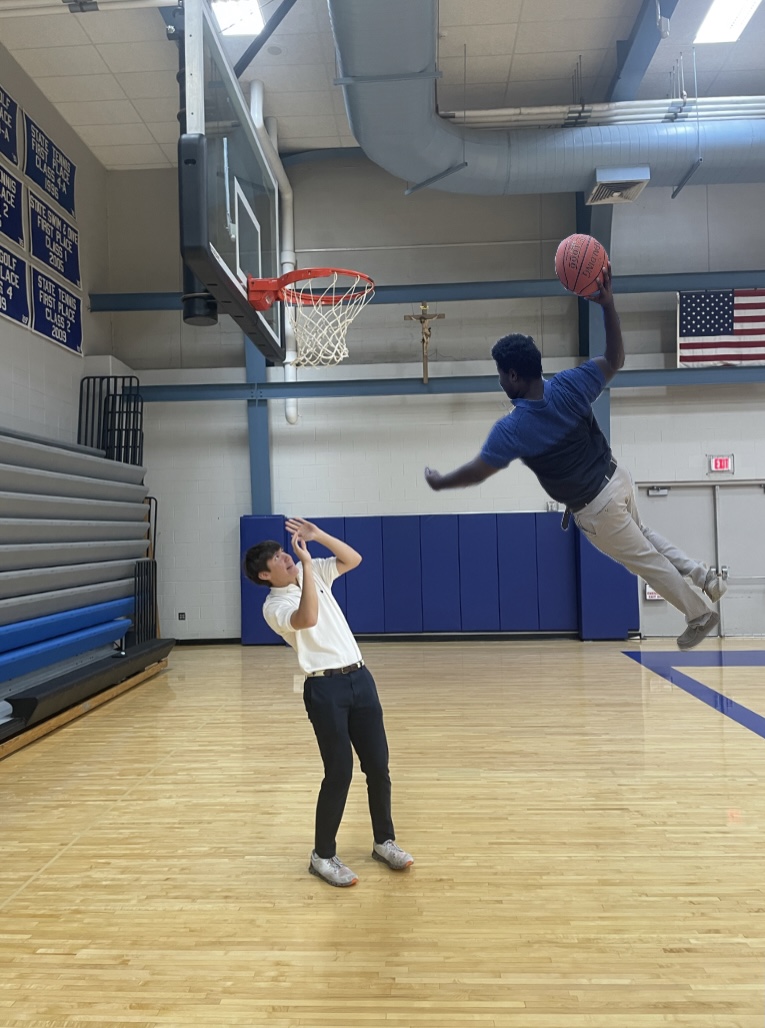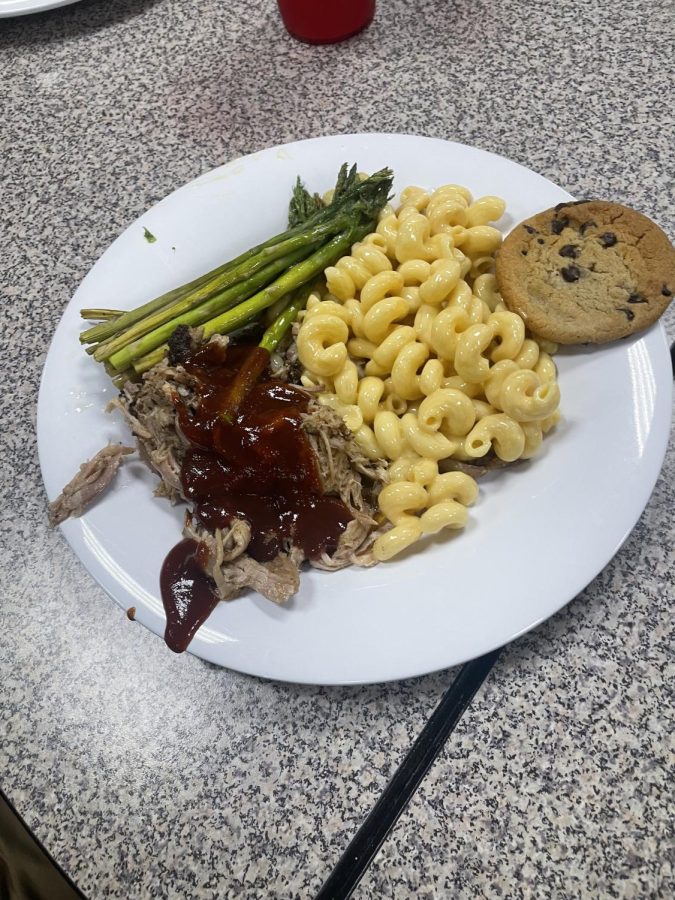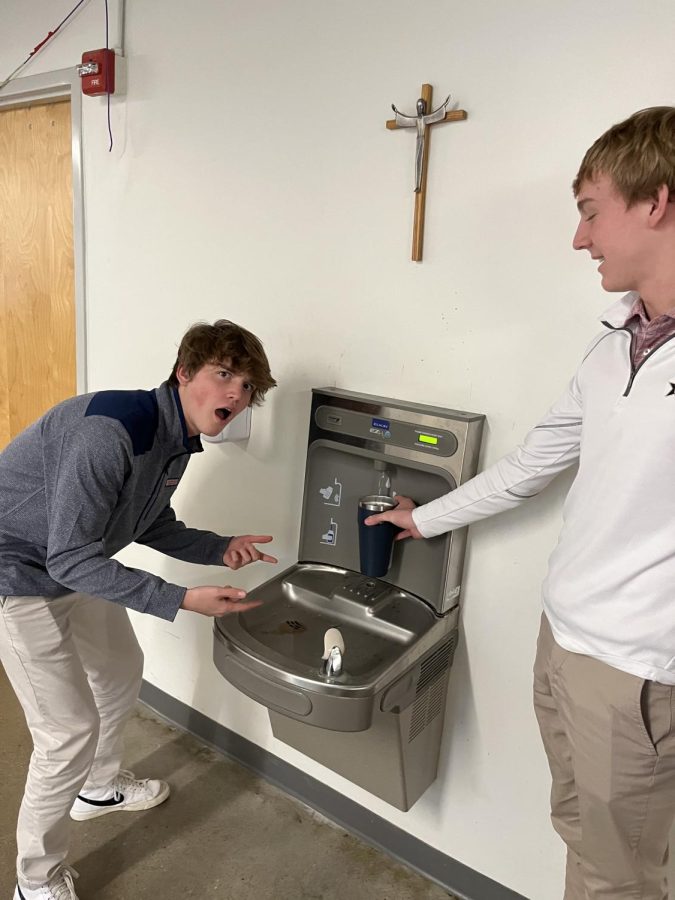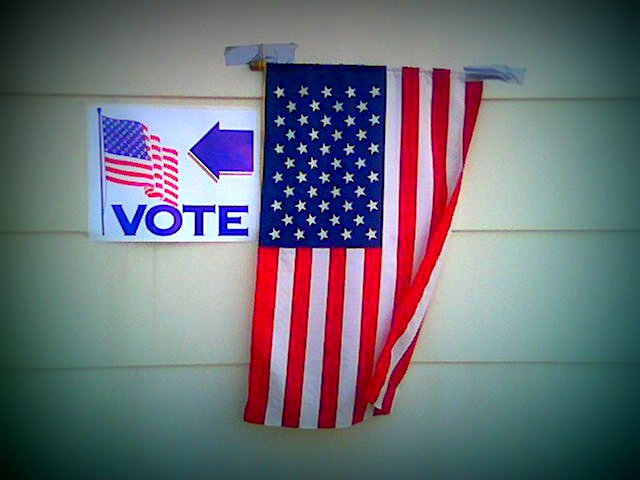Nov. 5 is a big day. Not only is it the day of the next presidential election, but it marks the first time many Rockhurst seniors will be able to impact the outcome by voting. Many Hawklets will flock to the polls to have their voices heard, representing the next generation of political viewpoints in the U.S.
With the day almost here, excitement is building.
“I feel like it’s a big, big achievement,” senior Anthony Totta said.
Totta is a four-year varsity wrestler here at Rockhurst. He is also the chair of the St. Joseph Table and is heavily involved in the Italian Heritage Club. Totta says the election is something that’s been on his mind for more than a year.
“Last year, I turned 17, and I kind of got hit with the realization that I’m going to be an adult next year, and that means I can vote. I’ve always kind of looked forward to that.”
In 2020, only 48% of Americans aged 18 to 24 voted in the presidential election. This demographic typically has the lowest turnout rate, but a spring poll by the Institute of Politics (IOP) at Harvard found more than half of 18-to-29-year-olds said they would definitely be voting this year. Senior Truman Lawhead sees anticipation growing among his classmates.
“People are definitely kind of amped to vote,” he said.
With buzz growing for the election, these seniors have done their due diligence in preparing for the election, something more experienced voters say is vital.
“Whether you’re 18 or whether you’re 50, you need to be an informed voter,” social studies teacher Tim Reidy said.
Both seniors Prep News talked to say they’ve done at least some homework on what they’ll be voting on.
“I’ve watched all the debates. I’ve done research on campaigns for, obviously, the presidential candidates,” Totta said.
“I kind of follow every news platform, so I kind of get the information from every side,” Lawhead said.
Rich Sullivan, another Rockhurst social studies teacher, stressed being an active voter.
“If we want democracy to succeed, we have to be involved in the democratic process,” he said.
Sullivan’s first election was in 1984. Not only has he been a staff member at Rockhurst for over two decades, including several years as a social studies teacher, but he is also an experienced source with whom seniors can talk about this year’s election.
Sullivan and other teachers have made it a point to encourage students to develop their own opinions, even though that can be difficult to do. In 2023, a study by the Pew Research Center found 85% of American teenagers expressed the same political opinions as their parents.
“The biggest tool in the United States of political socialization is our families,” Sullivan said.
“The people that introduce us to politics, and how we think about politics are our families.”
But the experienced voices on Rockhurst’s staff are encouraging the new voters to think for themselves.
“There comes a point in time when you know you should develop your own thoughts,” Reidy said.
English teacher Dr. Megan Caughron echoed that sentiment.
“Educate yourselves.”
While teachers and students may have different opinions and thoughts on the 2024 election, they agree it is imperative for students to vote.
“Voting is something that we fought for,” Reidy said.
“What makes America great is that we have, for the most part, historically, a peaceful transition of power, unlike every other empire the world’s known.”
Totta showed an understanding, as well, for how important the voting process is.
“I think it’s very important for not just people my age, but everybody who can vote to vote. Because we’re not just voting on things that are affecting us as a nation. We’re voting on things that are affecting us as a state and as a city… The people in charge want to hear what we have to think, and if we’re not giving them insight, then we’re not going to spark any real change.”
Rockhurst’s seniors are part of the next generation who will one day be the leaders of this country. Sullivan offers a simple reminder as they start their journey as part of the democratic process.
“The price of democracy is eternal vigilance.”
“Old enough to fight, old enough to vote.”
This was the slogan many people heard in the late 1960s. When the U.S. got involved with the Vietnam War in 1965, the age at which citizens could be drafted was 18, but the voting age was 21. Many young soldiers believed that fighting and potentially dying for their country warranted the right to vote. In 1971, the U.S. ratified the 26th Amendment. The bill passed easily, receiving 93% of votes in the House of Representatives. The Senate was no different. All 94 members voted in favor of the bill.
Both students Prep News talked with agree that the logic of those who advocated for the change more than 50 years ago resonates with them.
“Because we have to enlist in the army or enlist in the draft at 18, we should be able to vote for what we’re doing in this country,” Totta said.
“I think if you’re able to get drafted and all those things, it’s definitely where it [the voting age] should fall,” Lawhead said.
Teachers see it the same way.
“Traditionally, 18 is the age that students can be drafted, so it is absolutely suitable that they should also be able to vote,” Dr. Caughron said.
As for those who might argue that 18 year olds are not mature enough to truly understand what they’re voting on, Dr. Caughron says she believes seniors are capable of having an informed opinion.
“Developmentally, where they are intellectually and with experience, I think they can make reasonable decisions at 18.”
On Nov. 5, several new-to-voting Hawklets will head to the polls to vote in the 2024 election. This next generation of voters will undoubtedly help shape not only the 2024 election, but also the political movements of the future.
